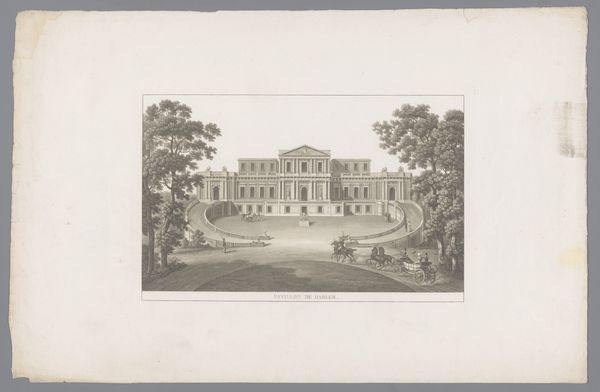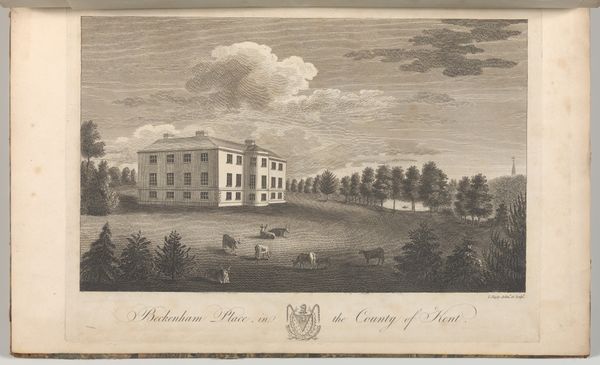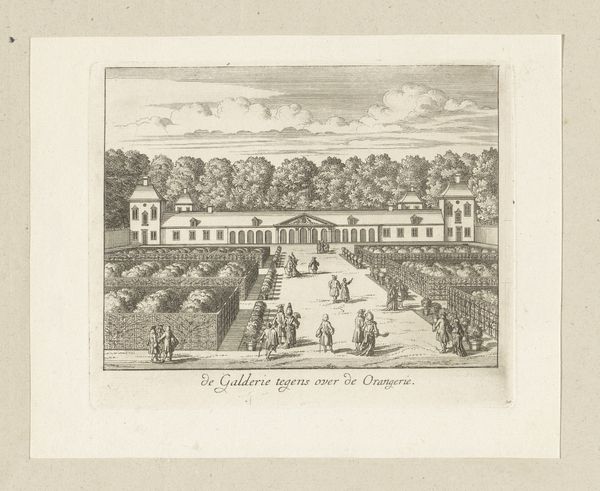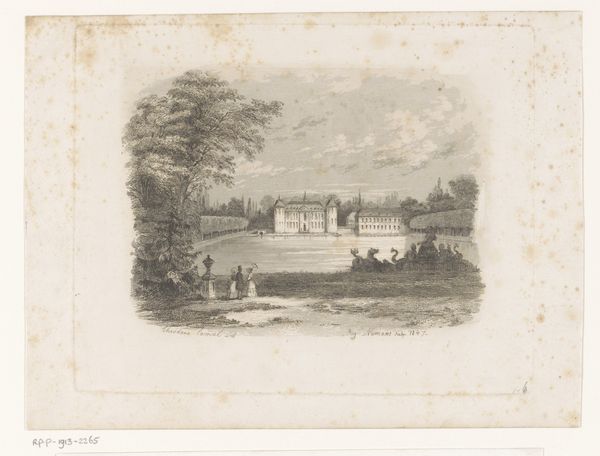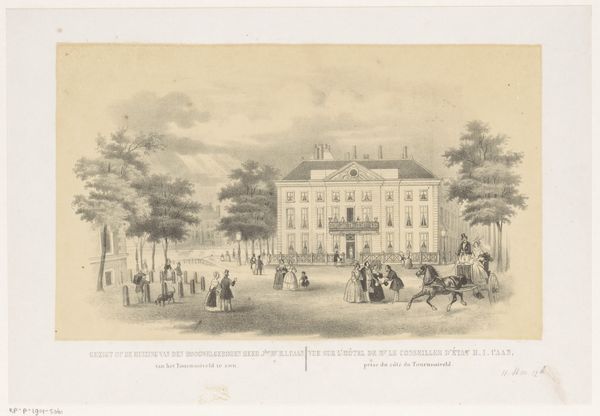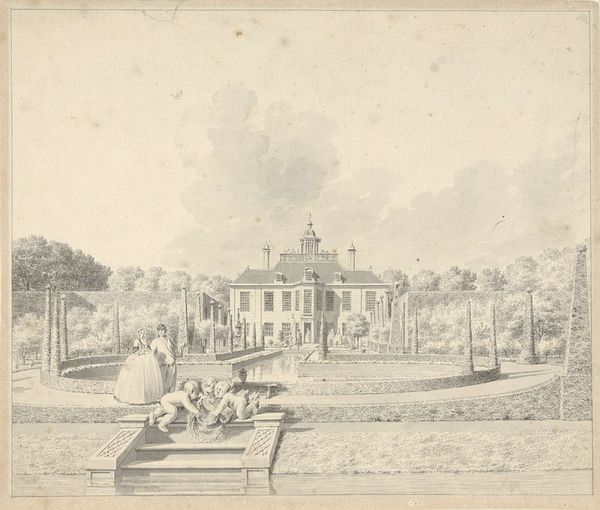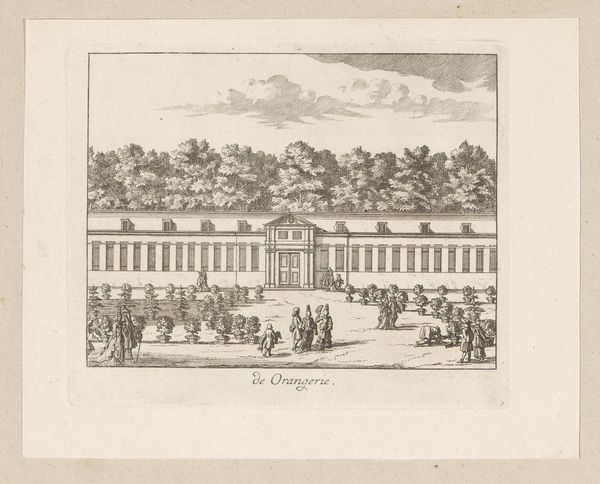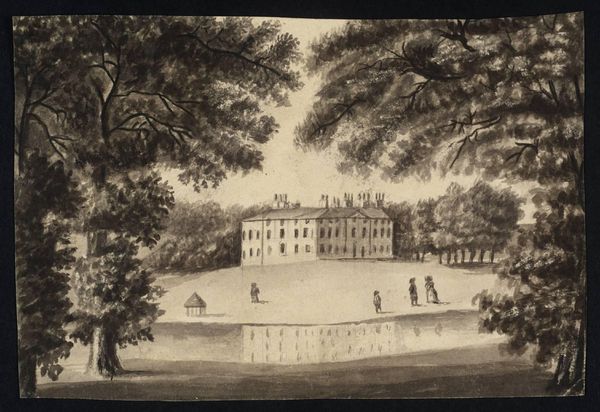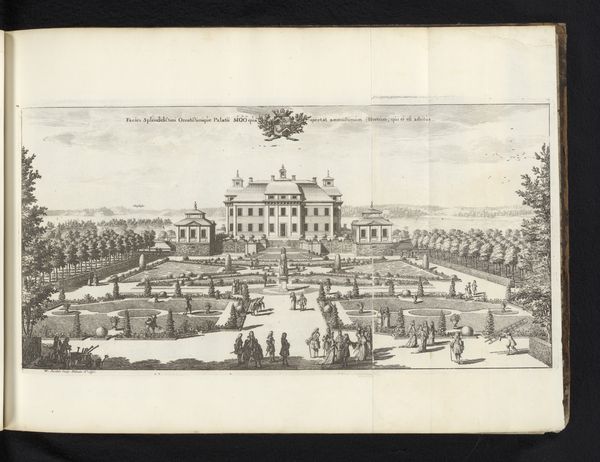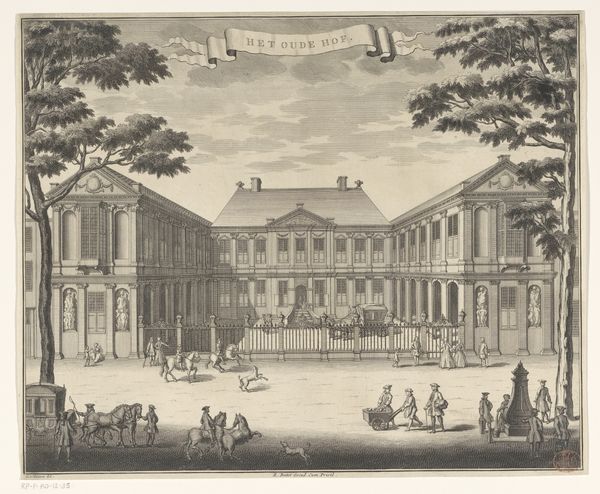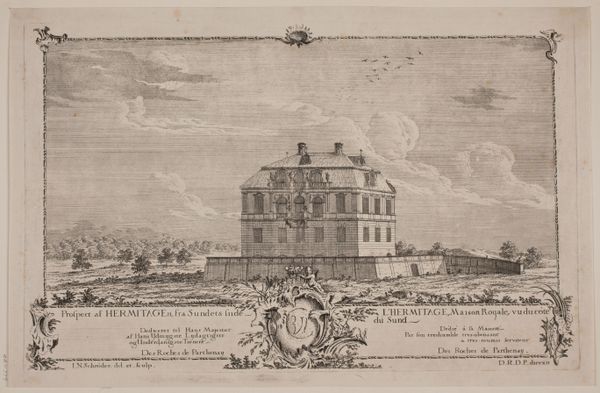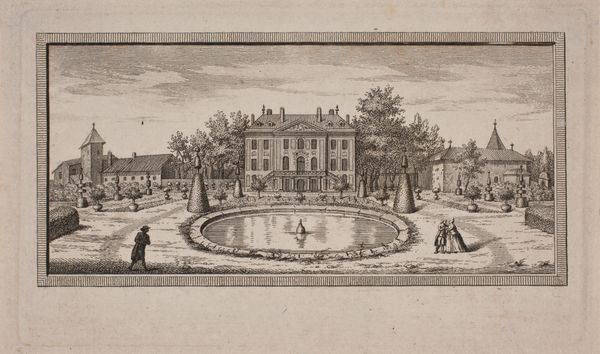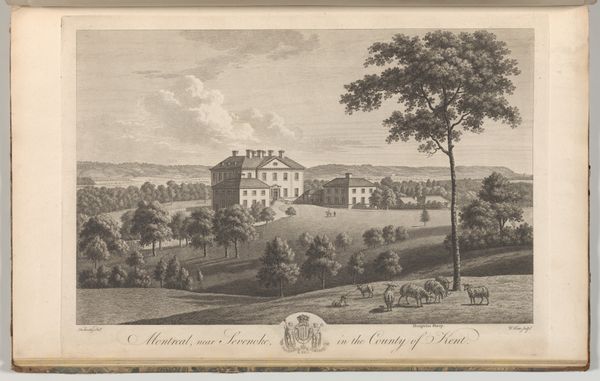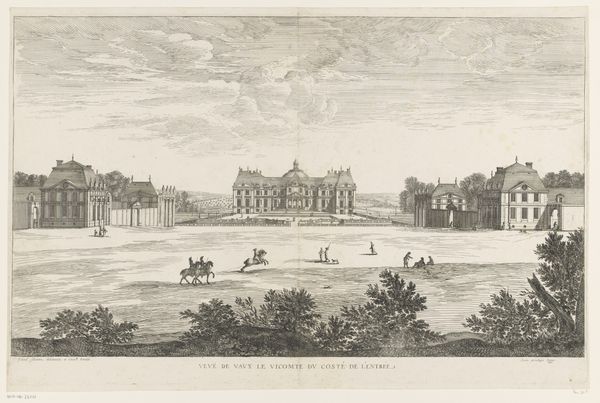
drawing, print, etching, plein-air, pencil, engraving
#
tree
#
drawing
# print
#
etching
#
plein-air
#
pencil sketch
#
human-figures
#
landscape
#
classicism
#
pencil
#
history-painting
#
engraving
Dimensions: sheet: 11 1/4 x 18 3/16 in. (28.5 x 46.2 cm)
Copyright: Public Domain
Editor: So, this is Joshua Kirby's "View of the Palace from the Lawn at Kew," made in 1763, using etching, engraving, and pencil. It’s very... reserved, almost muted. What story do you think it's trying to tell? Curator: More than telling a story, this piece gestures towards the consolidation of power and the constructed image of the ideal English landscape during the 18th century. The classical architecture, meticulously manicured lawn, and grazing sheep all point to a carefully curated vision of rural England, far removed from the realities of poverty and social unrest. What do you notice about the placement of the figures? Editor: They seem almost like part of the landscape, arranged to be looked at rather than actively participating. Is it a commentary on the class structure of the time? Curator: Absolutely. Consider who has access to this 'ideal' landscape, and who is being excluded. How does the artist portray the relationship between the palace, the land, and the people within it? Does it reinforce a sense of natural order or question it in any way? Editor: It’s all so orderly, which I suppose reinforces a specific societal viewpoint of the time. Almost like the Royal family and upper class have power over all of this land. Curator: Precisely! The very act of framing this view, of presenting it as something to be admired, serves a particular ideology. Can art truly be apolitical when even landscapes are loaded with symbolism and speak to power structures? What could Kirby be hinting about British power and global position, or Britain’s role within slavery and colonization at this moment? Editor: I never would have considered this artwork beyond just face value - it's like reading between the lines of landscape painting. Thanks! Curator: My pleasure. Remember, even seemingly simple landscapes often reflect complex power dynamics.
Comments
No comments
Be the first to comment and join the conversation on the ultimate creative platform.
